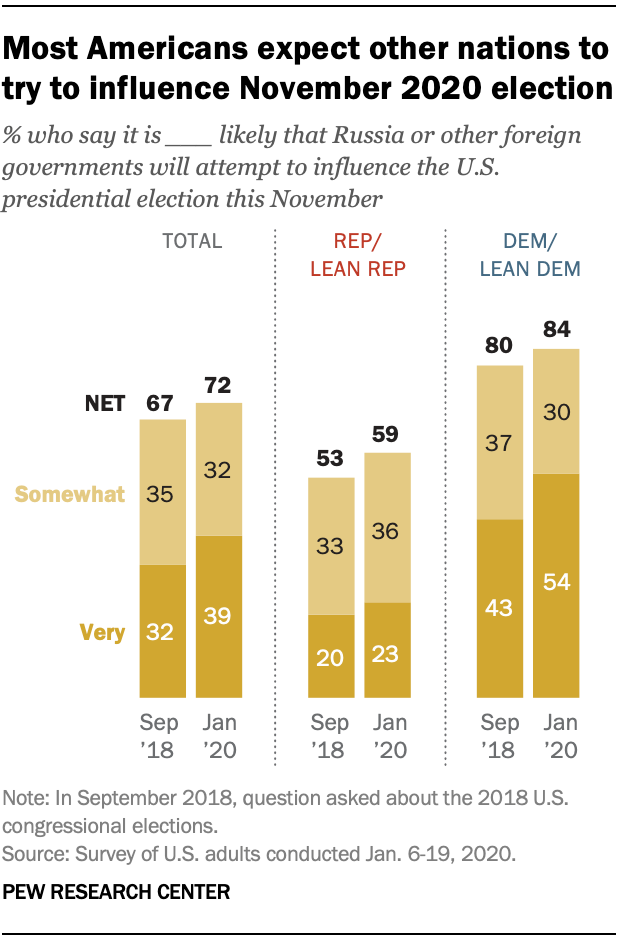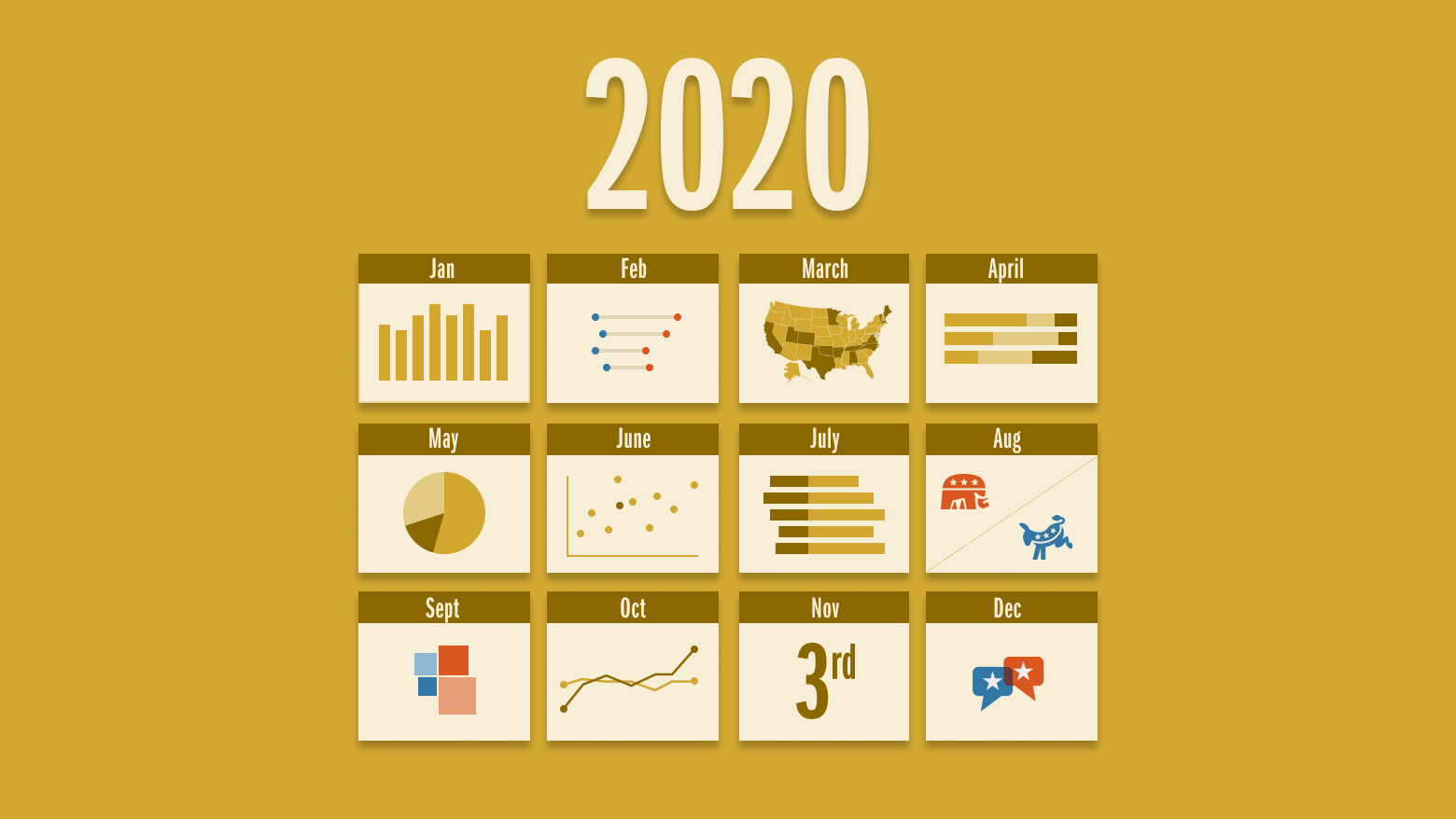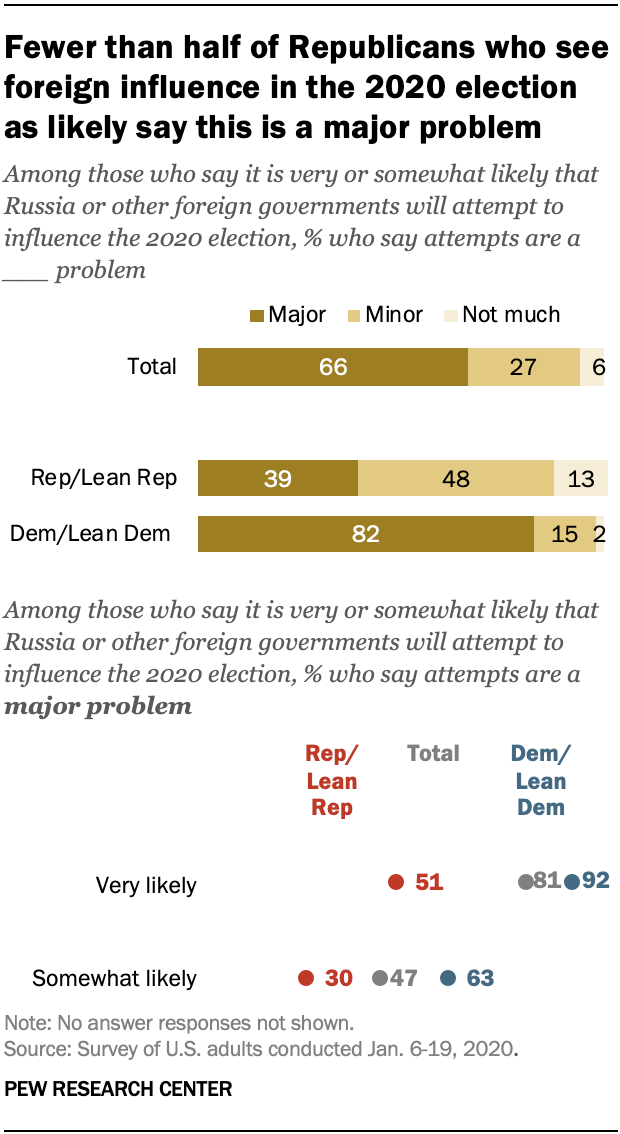Note: For more recent findings on this topic, see this August 2020 post.
Most Americans (72%) say it is likely that Russia or other foreign governments will attempt to influence the November 2020 election. But while majorities in both parties say this, this view is more widespread among Democrats than Republicans, with Democrats considerably more likely to consider efforts by foreign nations to influence the election to be a “major problem.”
Overall, roughly four-in-ten Americans (39%) say attempts by foreign governments to influence the 2020 election are very likely, with another 32% viewing this as somewhat likely. Just 27% say it is not too likely (20%) or not at all likely (7%) that these attempts will occur.
For this analysis on foreign election interference, we surveyed 12,638 U.S. adults in January 2020. Everyone who took part is a member of Pew Research Center’s American Trends Panel (ATP), an online survey panel that is recruited through national, random sampling of residential addresses. This way nearly all U.S. adults have a chance of selection. The survey is weighted to be representative of the U.S. adult population by gender, race, ethnicity, partisan affiliation, education and other categories. Read more about the ATP’s methodology. Here are the questions used for this report, along with responses, and its methodology.
[callout align=”alignright”]
Want to keep up with trends shaping the 2020 U.S. presidential election?
Sign up to receive our monthly newsletter.
[/callout]
An overwhelming share of Democrats and Democratic-leaning independents (84%) say it is at least somewhat likely foreign governments will attempt to influence the presidential election; a narrower majority of Republicans and Republican leaners (59%) hold this view.
Somewhat more Americans currently expect foreign interference in the presidential election this November than said this about the 2018 congressional election in the fall of that year (72% this year, 67% then).
Among those who anticipate that Russia or other foreign governments will attempt to influence the election, about two-thirds (66%) say this is a major problem. These views are much more prevalent among Democrats (82%) than Republicans (39%).
The degree to which people think interference is a major problem is strongly associated with how likely they think it is that foreign governments will attempt to influence the election. Among those who say foreign interference is “very likely,” 81% view these attempts as major problem. By comparison, a smaller share of those saying interference is somewhat likely (47%) say the same.
Even among those who say foreign interference is very likely, there are considerable partisan gaps in the share viewing such attempts as a major problem. Roughly nine-in-ten Democrats who say attempts are very likely (92%) say this is a major problem, while just half of Republicans who say interference is very likely (51%) say the same. Similarly, while 63% of Democrats who say foreign interference is somewhat likely view this as a major problem, that compares with just 30% of Republicans who view foreign interference as somewhat likely.
Note: Here are the questions used for this report, along with responses, and its methodology.



